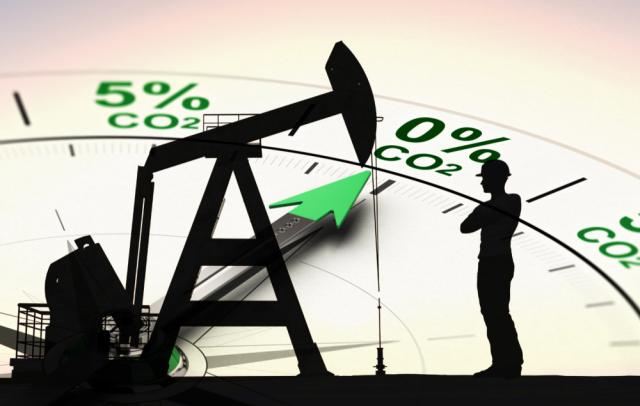
Speaking at Hart Energy’s DUG Midcontinent conference on March 2, Baker Hughes Vice President of Energy Transition Allyson Anderson Book also warned against overlooking carbon capture benefits. (Source: Hart Energy / Shutterstock.com)
Presented by:

This article appears in the E&P newsletter. Subscribe to the E&P newsletter here.
Without clear guidelines dictating the expected regulations for the energy transition, oil and gas operators won’t be able to effectively map out their decarbonization goals and methods, according to Allyson Anderson Book, vice president of energy transition at Baker Hughes,
As of right now, policy outlines for reporting carbon emissions in the U.S. are solely coming from investors and banks, each one with a different set of expectations. The lack of uniformity across the sector is creating a struggle for all companies reporting their efforts to abate carbon emissions.
“The more you start to see harmonization of the approach to sustainability and the expectations around what should be measured and shown as real KPIs [key performance indicators] and for ESG [metrics], the better off we all are because that's something you can plan to. It's the idea of a regulator giving you certainty,” Book said at Hart Energy’s DUG Midcontinent conference on March 2.
“Overall, the single biggest thing right now that has been happening throughout the pandemic is the acceleration of the focus across all industries on becoming sustainable,” she continued. “It’s the policy side of it, in terms of informal policymaking, is moving faster than I’ve ever seen any policy move.”

People outside of the energy sector often have conflicting definitions of decarbonization, believing it to mean completely eradicating the use of carbon in everyday products. However, as Book clarified, it’s impossible to take carbon out of a carbon-based product, so the term applies to abating carbon emissions in operations before it reaches the atmosphere.
“The thing about decarbonization is that term was rooted in the idea that you would take carbon out of the energy system itself,” Book said. “It was meant to apply the phase out of fossil fuels. And it’s the same thing with the term the energy transition—again, its application was to transition away from fossil fuel, but how we talk about it in the sector is actually a bit different.”
While many environmental activists argue the need to put more energy into finding cleaner energy solutions rather than reducing carbon emissions in existing oil and gas production methods, Book warned against overlooking carbon capture benefits. Doing something, even a short-term solution to a long-term problem, was better than doing nothing at all, she said.
“It’s incumbent on us to have a very dynamic energy mix,” Book continued. “And as long as we think about the performance goal of net-zero or getting the society overall to a lower carbon state, does it really matter which technology it is?
“It’s just really important right now that you keep all the options on the table [because] low-cost solutions win, because we don't want to create areas around the world with energy poverty.”
Alternatively, those against the energy transition point to the inconsistencies in renewable energy sources, such as energy prices increasing in the Northeast U.S. earlier this winter and the embargos on Russian oil after the country's invasion of Ukraine. However, even with the challenges facing energy transition, it’s important to work to create an energy mix that will benefit both energy consumers and the planet.
“I think that even if we planned for there to be an orderly transition, there are still things we have to shore up, but we shouldn't let that be the enemy and not try,” Book said. “Thinking about low-carbon solutions, some things are going to win and some things are going to lose, and that’s all a part of what we’re going to do. This has literally never happened in the history of the world.”
Recommended Reading
Battling the Secret Army of Leakers in the Oil and Gas Field
2024-08-20 - When it comes to emissions reductions, AI and machine learning can help, but actually collecting and interpreting emissions data has often proven a daunting task.
Comments
Add new comment
This conversation is moderated according to Hart Energy community rules. Please read the rules before joining the discussion. If you’re experiencing any technical problems, please contact our customer care team.

